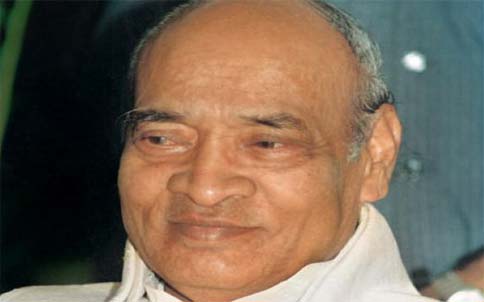By P.V. Prabhakar Rao
In 1999, delivering the Tata Memorial Lecture, P.V. Narasimha Rao had said, “I have been a doer throughout my life. Less of a talker and very few people are talking for me.” This wry statement about his life has proved to be true about his memory and legacy as well. For almost ten years after his death, from 2004 until 2014, while the party to which he belonged was in power, no one dared to talk about him. For a long time, people laboured to obscure his work – some for fear of being lost in the shadow of this towering personality; others out of sheer prejudice. As the saying goes, ‘You cannot hide the sun with the palm of your hand’, so has the immense contribution of this nearly-forgotten prime minister come to light. Ironically, this change has been wrought only since 2014, under the rule of parties that differed starkly in ideology from his own. Since then, there has been much talk about him both at the national level, as well as in his home state of Telangana. His contributions to the country are finally being recognized. Over the past five years, especially, P.V. Narasimha Rao’s extraordinary steps towards ushering in a new India and his philosophy have taken centre stage in every intelligent discourse in the country.
Recollect conditions in India before 1991
People who are old enough to recollect the India of the 1970s and 1980s will concur that the country went through a great transformation between 1991 and 1996. The impact of these years cannot be overstated – the contrast in the living conditions in India is astounding. The majority of the population in India today, however, is less than 35 years of age and is blissfully unaware of how India was before 1991. Economic independence and better quality of life define the new normal that emerged after P.V. Narasimha Rao’s term as prime minister, a new normal of computers and the information revolution, easy and convenient banking, multi-brand automobiles, an array of aircraft carriers, lucrative software jobs. This is a lifestyle that no one could have imagined earlier.
Who strove to bring about the new normal?
When something becomes normal, however, the role of the people who worked hard to make it so is often forgotten. It is therefore pertinent to question how India set upon this trajectory of growth. Many young women and men of the current generation seem to think that the Indian narrative was always one of growth and success. Few of them realise this was possible due to P.V. Narasimha Rao’s vision and action. To change India’s dismal story of social and economic despondency into a vibrant country with unprecedented economic activity was a herculean task. And this was achieved by a homegrown intellect, a traditional man with the most modern outlook. A dhoti-clad man not only steered this country onto the road to prosperity but achieved many other milestones – including successful space programmes and Nuclear programmes – all while attaining mastery over 17 languages and teaching himself programming in three languages! It is time that this intellectual from a small village in Telangana is given the credit he is due as the architect of a new and vibrant India.
How to remember him?
When dealing with the question of the legacy of such a personality as P.V. Narasimha Rao. We are immediately confronted by the question – how do we want to remember him? Was he a great intellectual or one of India’s few statesmen-politicians? Was he a polyglot with an innate understanding of India’s great cultural heritage or a modern technophile who believed that technology was a valuable tool for the country? Was he a philosopher or a Prime Minister?
A revolutionary: combination of good heart, good mind
In a uniquely Indian sense, he was all these and more. In my opinion, however, P.V. Narasimha Rao should be remembered as a revolutionary. It was this revolutionary zeal that first led him to take part in the fight against the Nizam of Hyderabad, that drove him to join politics, that led him to make innovative reforms all through his political career – ranging from prison reforms in 1962 to land reforms in the 1970s to, finally, the economic reforms in 1991. He believed in change, but not in ‘change for change’s sake’. He clearly understood that even a minute change should bring about a qualitative improvement in the lives of people at the lowest rungs of society. At the core of all his reforms was an abiding commitment to improvement – to change policy and procedures, rules and regulations in order to make them more contemporary and relevant as well as user-friendly and effective. This, I think, is what makes P.V. Narasimha Rao a unique personality and a great leader. Nelson Mandela once commented that a good mind and a good heart are a formidable combination. P.V. Narasimha Rao had both. This was the reason he evolved to become a prominent leader of the country.
Preserving his ideas, philosophy
The present volumes comprise of P.V. Narasimha Rao’s speeches and interviews with senior journalist and personalities of his time. Hopefully, these will provide an insight into his mind, unravelling his political philosophy, his working style and the vision he had for this great country called India. These speeches, interviews and thoughts were all found in his various computers. While some may already exist in the public domain, it is nevertheless a worthy enterprise to collate these writings. I hope these will go a long way in preserving his ideas and philosophy for the benefit of posterity.
(The author is P.V. Narasimha Rao’s youngest son. The write up is the preface to the three volumes – collections of speeches, essays and interviews- that are being published by Telangana State Sahitya Academy as part of PV Centernary Celebrations)




